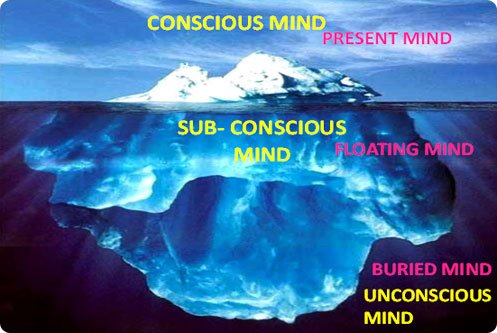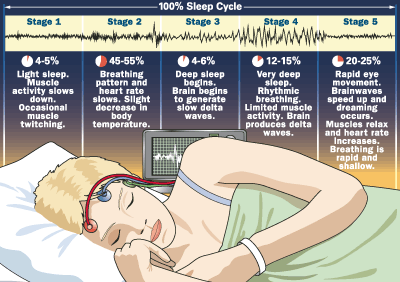Dreams are created by the unconscious mind, which is a part of the brain that is not bound to reality. The unconscious mind is always at work, imagining things, twisting reality, and playing tricks on our minds. Dreams are a mix ‘n match of the experiences from your conscious mind that kicks in when the conscious mind drifts off to sleep.
Dreams are a subject that inspire and fascinate people from all over the world, and have been doing so for thousands of years. Everyone has some recollection of having dreams, but it can be hard to hold on to all the details. Some dreams are happy, a few are scary, and others can even be funny. Dreams have kickstarted the imagination of many artists and projects, including Christopher Nolan’s blockbuster ‘Inception’, Salvador Dali’s ‘Persistence of Memory’, and Stephen King’s ‘Dreamcatcher’.
Aside from being so popular and mysterious, what the heck is a dream? What is the mental “stuff” that dreams are made of? Why do we dream in the first place? Can we control what we dream?
That’s a lot of questions, only some of which have firm answers at present. Why we dream is still one of the behavioral sciences’ greatest unanswered questions, but it’s still important to explore what science has to say on this controversial topic.
The Conscious And Unconscious Mind
To understand dreams, we need to take a quick look at how humans go about living our lives. Life is a lot like shopping. You have so much to choose from, and whatever you choose, see, or experience will go into your shopping cart. We might also call this shopping cart our ‘experience’ or ‘memory bank’. All of the encounters and events of life stay in our minds.
Now, in terms of our cognition, everyone has what scientists call the ‘conscious mind’. There is also an ‘unconscious mind’, and how these two parts work together creates our personality and imagination.

The conscious mind is a collection of all the things you know, such as what time it is, what you’re currently thinking about, the fact that you are reading this article, or that nasty little itch on your back that you can’t quite reach. The conscious mind processes all the information you receive throughout your life experiences and stores it in your memory. It’s basically the CPU core of your brain, and it is also the smallest part, which may surprise you!
The unconscious mind is a bit trickier and much bigger. The unconscious mind is not bound to reality, which makes it a lot more playful. The unconscious mind is always at work, namely imagining things, twisting reality, and playing tricks on our minds. The unconscious mind is also a known culprit for causing “Déjà vu” or the feeling of having seen something before.
Also Read: Are Single-Celled Organisms Conscious?
Collaborative Function Of The Conscious And Unconscious Mind
Let’s take an example so that we can see this at work. What comes to your mind when I say ‘rice’? Well, your conscious mind tells you – rice: a simple white grain that is edible. Enter the unconscious mind, and you start imagining all the tasty dishes that are made from rice. When your conscious mind looks at a palm tree, your unconscious mind starts imagining all the trips you have had to beaches, all the movies you’ve seen beaches in, all the beaches you want to visit etc. The unconscious mind is basically the factory for your imagination – always at work and always imagining things for you.

Most of the time, the conscious mind dominates our thinking process, so we are safe from the tricks of its more mischievous cousin. However, when we are fast asleep at night (or rather when the conscious mind is asleep), the unconscious mind comes out to play. Seeing the unconscious mind at work is what we call “dreaming”. Now, one small problem that the unconscious mind faces is the lack of a memory. It shares its memory with the brain’s CPU: the conscious mind. Perhaps now you can see why your dreams include things that you have already seen in life. In short, a dream is just a play being put on by the unconscious mind, a mix ‘n match of the experiences from your conscious mind that kicks in when the conscious mind drifts off to sleep.
Also Read: Can Hypnosis Be Used To Plant An Idea In Someone’s Mind?
Why Don’t We Always Dream?
 Given the explanation above, if this is how we dream, then why don’t we dream every time we go to sleep? Well, one necessary condition for dreaming is the inactivity of the conscious mind. When we go to sleep, the conscious mind is not necessarily asleep. There are basically 5 stages of sleeping, ranging from light sleep to very deep sleep and culminating in REM sleep. REM sleep is characterized by rapid eye movements (hence the name) and it is at this point in the sleep cycle where most of our dreaming takes place. There are other times when the conscious mind will kick in, such as when we snore. The conscious mind is busy making us snore and is wide awake, so it does not allow its naughtier cousin to take over and give us dreams. In other words, we can’t dream while we’re snoring. Research has also shown people dreaming in non-REM stages too. Scientists have yet to explain these non-REM dreams and attribute them mostly to the conscious mind losing control.
Given the explanation above, if this is how we dream, then why don’t we dream every time we go to sleep? Well, one necessary condition for dreaming is the inactivity of the conscious mind. When we go to sleep, the conscious mind is not necessarily asleep. There are basically 5 stages of sleeping, ranging from light sleep to very deep sleep and culminating in REM sleep. REM sleep is characterized by rapid eye movements (hence the name) and it is at this point in the sleep cycle where most of our dreaming takes place. There are other times when the conscious mind will kick in, such as when we snore. The conscious mind is busy making us snore and is wide awake, so it does not allow its naughtier cousin to take over and give us dreams. In other words, we can’t dream while we’re snoring. Research has also shown people dreaming in non-REM stages too. Scientists have yet to explain these non-REM dreams and attribute them mostly to the conscious mind losing control.
Also Read: Why Can’t Some People Remember Their Dreams?
Why Don’t We Act Out Our Dreams?
During REM sleep, several physiological changes also take place. Our heart rate and breathing quickens, our blood pressure rises, we can’t regulate our body temperature as effectively, and our brain activity increases to the same level as when we are awake, or even higher. The rest of the body, however, is paralyzed. This paralysis is caused by the release of glycine, an amino acid, from the brain stem onto the motoneurons (neurons that conduct impulses outward from the brain or spinal cord). This is nature’s way of ensuring that you don’t kick the person sleeping next to you while dreaming about playing football!
Also Read: How Do You Control Dreams?
Alternative Dreaming Theories

For centuries, the Ancient Greeks and Romans taught that dreams were a connection between our world and the heavens. They believed that dreams had prophetic powers. Certain schools of thought still believe in dreams having meanings and conduct interpretations of dreams for insight into the world beyond. It was at the end of the 19th century when Sigmund Freud and Carl Jung came up with the modern theories of dreaming. Freud’s theory centered around the notion of repressed longing — the idea that dreaming allows us to sort through unresolved, repressed wishes. Carl Jung, his student, had similar ideas, but his theories were closer to what we have discussed above.
Technological advancements since that time have allowed us to delve deeper into this topic. The latest research of measuring brain activity during various sleep conditions has found even more insights into dreaming. A patient suffering a lesion in a part of the brain known as the right inferior lingual gyrus (located in the visual cortex) was known to have lost the ability to dream, suggesting that dreams are generated, or at least transmitted, through this particular area of the brain, which is associated with visual processing, emotion, and visual memories. The latest theories also suggest that dreams are just random impulses in the brain, pulling out memories and thoughts at random. It is only when we wake up that the the brain tries to connect these random thoughts and cooks up a “dream” or a story to make sense of these random images.
Concerning the other questions we posed at the beginning of this article, science has little to say. People have been known to control their dreams, and people have also been controlled by their dreams. ‘Why do we dream?’ is a question that is very much still up for grabs. Personally, I like that dreaming is a largely unexplained phenomenon… it keeps a bit of mystery out there in the world.
Anyways, while science continues trying to explain dreams, you should use your unconscious mind to imagine your own explanations. Happy Dreaming!
Also Read: Can Dreams Reveal Problems Of Your Past?
How well do you understand the article above!

